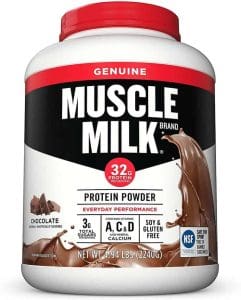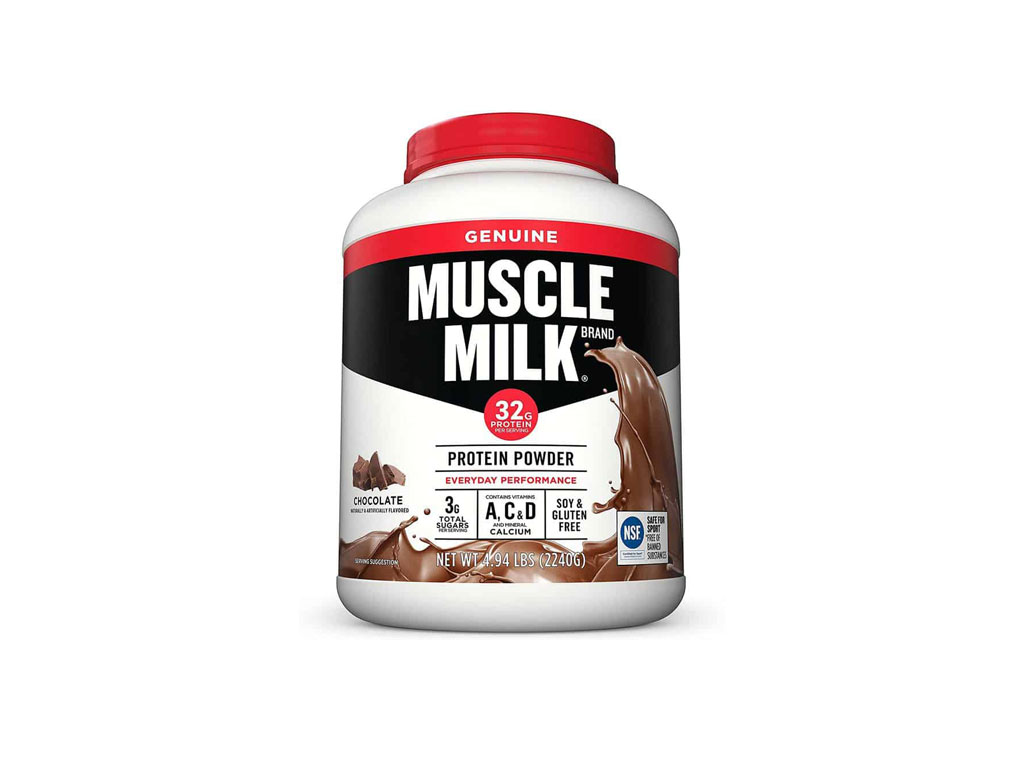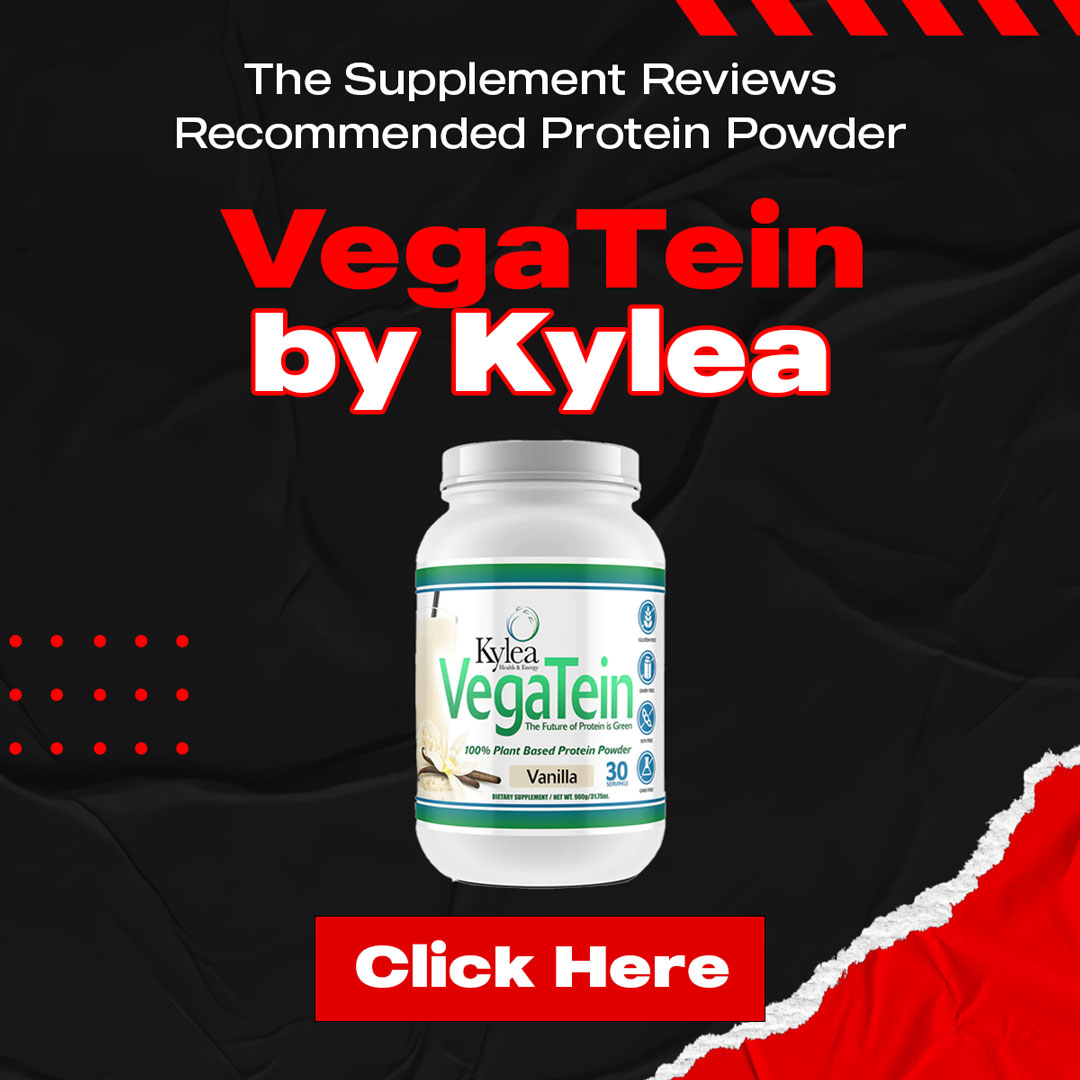 Muscle Milk Protein Powder is a very popular brand of protein that helps many people try to reap the most rewards out of their workout. Its goal is to help increase lean muscle and also maximize your recovery to get you back into the weight room as soon as possible. Check out this Muscle Milk Protein Powder review to learn more or look through our Best Whey Protein Powders to learn about some more highly recommended options.
Muscle Milk Protein Powder is a very popular brand of protein that helps many people try to reap the most rewards out of their workout. Its goal is to help increase lean muscle and also maximize your recovery to get you back into the weight room as soon as possible. Check out this Muscle Milk Protein Powder review to learn more or look through our Best Whey Protein Powders to learn about some more highly recommended options.
Benefits of Muscle Milk Protein Powder
- Sustained energy
- Builds lean muscle
- Increases strength
What is Muscle Milk Protein Powder?
Muscle Milk Protein Powder is an incredibly common brand of protein supplements that delivers their protein in a wide variety of ways. They have powders, shakes, bars, all for the sake of making your consumption of protein that much more convenient.
It strives to help you work out better, recover faster, and get back into the weight room as soon as possible.
How Does Muscle Milk Protein Powder Work?
Muscle Milk Protein Powder works by utilizing a blend of proteins derived from different sources in order to help increase the growth of lean muscle in your body. These proteins are digested by your body easier than they would be from natural food, and can help increase the rate of growth and recovery you experience after a workout.
Muscle Milk Protein Powder Ingredients
Protein Blend
When it comes to protein powders, the less sources the protein is derived from, the better. Muscle Milk Protein Powder works by deriving protein from rapid releasing whey, slower digesting micellar caseins from milk protein isolate and concentrate, with added calcium and sodium caseinates.
No matter the case, when it comes to protein we like to see a one or two high quality protein sources, and that’s it. The more protein you get from high quality sources, the better the effect on your muscles and workouts. All the other ingredients actually dirty the blend, and are used to make it cheaper while still providing a source of protein. It’s just not all good protein.
BCAA Count
BCAA stands for branched chain amino acids, and they play a vital role in decreasing recovery time and increasing muscle mass. Adding BCAA to a protein powder has become fairly common for good reason, it helps your body absorb amino acids at an even quicker rate.
The more amino acids that are being absorbed, the more your muscles get to grow, and the faster you get to recover. Although this product does not contain additional BCAA, you do get some naturally from the protein sources themselves. However, concurrently supplementing BCAA with your protein powder can give you even better results.
Nutritional Information
In one scoop of Muscle Milk Protein Powder you can find:
- Calories: 150
- Total Fat: 6g
- Cholesterol: 10mg
- Sodium: 80mg
- Potassium: 300mg
- Total Carbs: 9g
- Protein: 16g
This protein powder is also loaded with many positive vitamin and minerals. It is interesting to notice that although the serving size is one scoop, the amount of protein you are getting is almost half of most other products. If you were to take 2 scoops, the amount of calories, fat, sodium, and carbs would make Muscle Milk Protein Powder far less ideal compared to our Best protein powders.
Pros of Muscle Milk Protein Powder
- Popular brand
- Inexpensive
- Contains vitamins and minerals
Cons of Muscle Milk Protein Powder
- Not the healthiest protein powder
- Contains a lot of different sources of protein
- Long ingredient list
- Low dosage of protein
Muscle Milk Protein Powder Conclusion
Muscle Milk Protein Powder is a very popular and affordable choice for many body builders on a budget. It seems to be healthy due to the vitamins and minerals, but unfortunately has a high amount of calories when taking in the same amount of protein that other products offer in one serving. To find the absolute best protein powders on the market, check out the highest rated Top 10 Best Protein Powders.
I’m not just a supplement analyst. I’m an extremely qualified one! I am a Certified Nutrition Coach (CNC) and actually received my certification directly from the National Academy of Sports Medicine. I am also a Nutrition & Wellness Consultant, certified by the American Fitness Professionals Association (AFPA).



